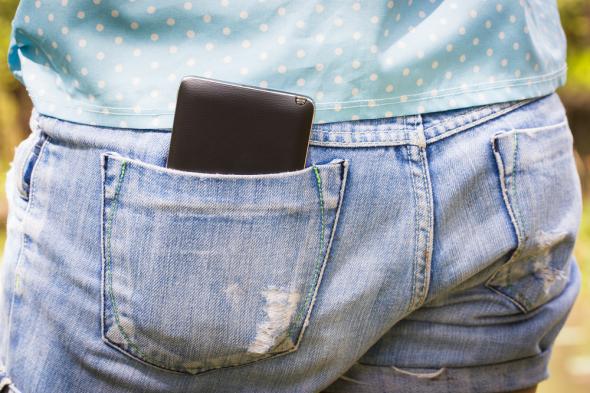From 2011 to 2014, San Francisco’s 911 dispatchers experienced a 28 percent surge in emergency calls. It wasn’t because of an increase in crime. Pranksters weren’t inundating the system. The real source? Butt dials.
According to a new report by Google, about 20 percent of all 911 calls made in San Francisco last year were pocket dials. As more people ditch landlines for smartphones—which are required to let users make emergency calls without having to unlock them—accidental emergency dials are on the rise. This is a big problem for 911 dispatchers who have to make sure the silence on the other end isn’t someone in danger. The extra investigation is straining an already overworked system.
Not only is it time-consuming for the dispatcher to take a long, silent butt dial, but it also exacerbates the follow-up process. The report found that it took an average of one minute and 14 seconds to determine if the call was accidental. Nearly 40 percent of the workers at a San Francisco call center said chasing down silent calls was the biggest “pain point” of their job.
Last year, FCC Commissioner Michael O’Rielly wrote a blog post suggesting that 50 percent of 911 calls were the result of butt dials. “Dedicated and hard-working public safety officials who answer and respond to Americans in times of need are being inundated by accidental wireless calls to 911,” O’Rielly wrote. “This is a huge waste of resources, raises the cost of providing 911 services … and increases the risk that legitimate 911 calls—and first responders—will be delayed.”
He suggested that wireless providers automatically send a text to 911 callers. “If consumers are alerted to the simple fact that they have dialed 911 accidentally, they may take precautions to prevent it from happening again,” he wrote. He also posed a penalty fee for repeat butt-dial offenders.
In the United Kingdom, emergency call centers adopted a system to quickly identify butt dials by prompting the caller to press “55” if they were there, according to the BBC. The technology helped reduce the volume of calls.
Google recommends automating the callback process for dispatchers and improving the way call centers keep track of accidental dials. Until 911 handlers find a solution, consider locking your phone or setting a passcode before jamming it back into your pocket. It might make an overworked dispatcher’s day a little better.
